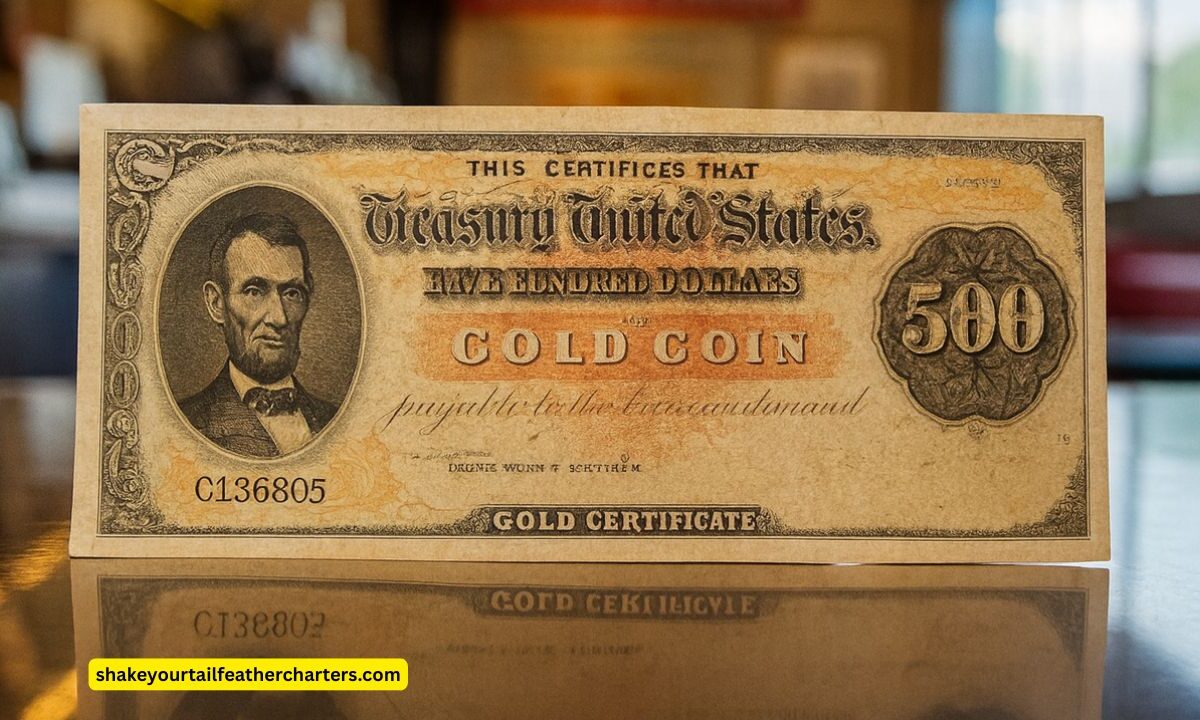Casually tossing out a dollar bill? Think again. Among America’s circulating bills are rare treasures that, if recognized, could turn a modest bill into a life-changing windfall.
In 2025, certain exceptional dollar notes have sold for tens of thousands—or more—thanks to serial number quirks, historical rarity, and printing errors. Here’s your guide to the five rare U.S. dollar bills that could make you rich overnight.
What Makes a Dollar Bill Valuable?
Several factors determine value:
- Historic rarity – Early large-size and obsolete denominations like rare Silver Certificates or Gold Certificates.
- Eye-catching serial numbers – Patterns (ladder, solid, repeaters), star notes (indicating replacements), or paired serial-match errors.
- Unique misprints or errors – Doubled serials, misaligned prints, obstructed or foreign-object impressions.
- Condition (grade) – Unity of crispness, uncirculated condition, and no folds multiply value.
- Popularity & demand – Items like the 1890 “Grand Watermelon” $1,000 note generate strong collector buzz.
Top 5 Rare Dollar Bills That Could Make You Rich Overnight
| # | Bill Variety | What Makes It Valuable | Possible Value Range |
|---|---|---|---|
| 1 | 1890 Grand Watermelon $1,000 Note | Unique green banding on denomination (“watermelon”) | $2–3 million+ |
| 2 | 1891 Red-Seal $1,000 Treasury Note | Extremely rare; only two known | $2.5 million+ |
| 3 | 1882 $500 Gold Certificate | Civil War era, near-mint survival | Up to $2.7 million |
| 4 | Rare Serial Stellar $1 Note | Recent series with duplicate FRB serial pair | Up to $150,000 |
| 5 | “Del Monte” $20 Error Bill | Obstruction error with sticker printed underneath print | Up to $396,000 |
Deep Dive Into Each Rare Bill
1. 1890 Grand Watermelon $1,000 Note
Named for its stylized green stripes on the denomination resembling watermelon rind, this note is among the most famous—and prized. Few survive, and demand among collectors is massive.
2. 1891 Red-Seal $1,000 Treasury Note
One of the rarest in any category: only two are known. The last auction pushed its value into the $2.5 million range, making it a true “ultra note.”
3. 1882 $500 Gold Certificate
A relic of the 19th century and part of gold-backed currencies, this note’s rarity and survival of near-mint condition led to a $2.7 million sale. It’s one of the highest-valued U.S. paper bills sold.
4. Serial Error $1 Note (2014/2016 Match Pair)
Some modern $1 bills share exact duplicate serials, violating the Bureau of Engraving’s guidelines. Paired notes can sell for at least $20,000, with graded, premium-condition examples reaching $150,000.
5. “Del Monte” $20 Error Note
A printing press mishap left a Del Monte produce sticker on a $20 bill when the overprints ran—creating an iconic “retained obstruction” error. One sold for nearly $400,000, earning the Guinness World Record for most expensive error note.
How to Identify Your Potential Million-Dollar Dollar Bill
- Study the Serial Number
- Low/High numbers, ladder sequences, repeats, odd star notes, or obvious duplicate pair patterns command premiums.
- Inspect for Obvious Errors
- Look for press obstructions, misprints, foreign materials encapsulated under ink, or misaligned seals.
- Note Condition and Grade
- Crisp, uncirculated bills without folds or stains multiply legal tender value considerably.
- Identify Historical Series
- Large-size pre-1929 notes, especially high denominations, are highly collectible.
- Seek Professional Verification
- For rare possibilities, a grading service evaluation (e.g., PMG, PCGS currency) validates authenticity and condition for sales.
From 1890’s distinctive watermelon stripes to modern-day printing mixups, some U.S. dollar bills carry immense numismatic value.
If you spot one of these rare $1,000-era notes, a serial oddity, or a stunning error, don’t toss it—get it graded. What looks like everyday change could be your ticket to becoming unexpectedly wealthy.
FAQs
Yes—error notes with duplicate serials printed between 2014–2016 have sold as pairs for up to $150,000 when graded.
Its unique green grill design on the denomination and extremely limited surviving examples make it one of the rarest U.S. bills.
Absolutely—professional grading confirms value, protects the bill, and opens the door for serious buyer interest.

